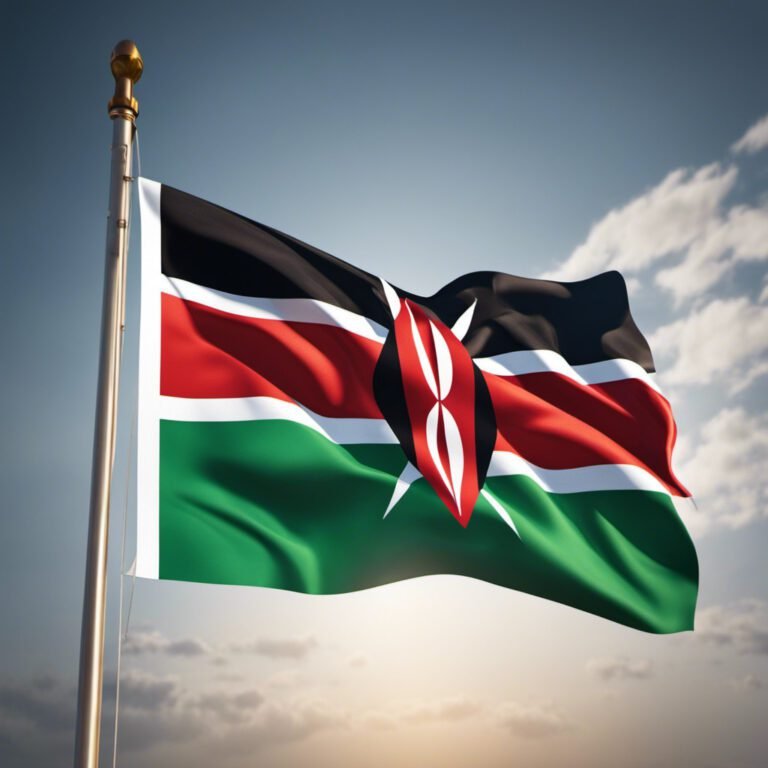What Are The Primary Exports Of Kenya?
Have you ever wondered about the primary exports of Kenya? Kenya, located in East Africa, boasts a vibrant economy fueled by a diverse range of exports. From the rich agricultural sector to growing industries, this article delves into Kenya’s main exports, revealing the country’s most significant contributions to the global market. Get ready to explore the dynamic world of Kenyan exports and discover the key sectors driving the country’s economic growth. Kenya, located in East Africa, has a diverse range of primary exports that contribute significantly to its economy. From agricultural products to mineral resources, Kenya has established itself as a key player in international trade. In this article, we will explore the main export categories of Kenya, highlighting the specific products that fall under each category.
Agricultural Products
Kenya boasts a rich agricultural sector that produces a variety of high-quality products. One of the standout items in this category is tea, which has gained international recognition for its exceptional flavor and aroma. Kenya is one of the world’s leading exporters of tea, with its tea estates covering vast areas of the country. The tea industry not only contributes to Kenya’s economy but also provides employment to many locals.
Coffee is another notable agricultural export of Kenya. Known for its bold and distinct flavor, Kenyan coffee is highly sought after in the global market. The country’s favorable climate and altitude create ideal conditions for coffee cultivation, resulting in beans of exceptional quality. Kenya takes pride in its coffee production, and the industry plays a crucial role in generating foreign exchange earnings.
Horticultural products are yet another significant export category for Kenya. With its favorable climate and fertile soil, the country produces a wide range of fruits, vegetables, and flowers. Kenyan horticultural products are synonymous with freshness and superior quality. From tropical fruits such as mangoes and avocados to vibrant flowers like roses and carnations, Kenya’s horticultural exports have gained popularity worldwide.
Floriculture, specifically the export of flowers, holds a prominent place in Kenya’s agricultural exports. The country has emerged as one of the leading suppliers of cut flowers globally, exporting to various destinations, including Europe, Asia, and the Middle East. Kenyan flowers are renowned for their long vase life, vibrant colors, and diversity of species. The floriculture industry contributes significantly to foreign exchange earnings and provides valuable employment opportunities.
Kenya also exports a wide range of vegetables and fruits. From staple crops like maize and potatoes to tropical fruits like pineapples and bananas, Kenyan agricultural products cater to both domestic and international markets. The country’s fruit and vegetable exports are known for their freshness, quality, and nutritional value. These products play a crucial role in providing sustenance, generating revenue, and contributing to Kenya’s economic growth.
Petroleum and Petroleum Products
While Kenya is not a significant producer of petroleum, it does export both crude and refined petroleum products. Crude petroleum is obtained from the Turkana oil fields, which have the potential to transform Kenya’s energy sector. The exploration and export of crude petroleum contribute to the country’s economic development and energy independence. Refined petroleum, on the other hand, includes various petroleum products such as gasoline, diesel, and jet fuel, which are crucial for domestic consumption and export to neighboring countries.
Industrial Products
Kenya’s industrial sector plays a vital role in the country’s economic growth and development. Cement is one of the primary industrial exports, with several cement manufacturing companies catering to both domestic and regional markets. Kenya’s abundant limestone reserves make it an ideal location for cement production.
Iron and steel are also significant industrial exports of Kenya. The country boasts several iron and steel plants that produce a wide range of products, including bars, sheets, and wire rods. Kenya’s iron and steel industry contribute to infrastructure development and the manufacturing sector, further expanding the country’s exports.
Chemicals form an essential part of Kenya’s industrial product exports. The chemical industry produces a variety of products, such as fertilizers, paints, and plastics. Kenya’s agricultural sector greatly benefits from the export of fertilizers, which enhance crop productivity. Additionally, the production of paints and plastics caters to both the domestic and regional markets, further bolstering Kenya’s export potential.
Textiles and apparels have emerged as noteworthy industrial exports for Kenya. The country has a vibrant textile industry that produces a wide range of fabrics, garments, and accessories. Kenyan textiles are known for their vibrant African prints and quality craftsmanship. The textile and apparel industry not only generates revenue but also provides employment opportunities, particularly for women in rural areas.
Fish and Aquatic Products
As a country rich in water bodies, Kenya has a thriving fish and aquatic products industry. Fish fillets, which are exported to international markets, form a significant portion of Kenya’s aquatic exports. The country’s freshwater lakes and the Indian Ocean provide diverse fish species, including tilapia, Nile perch, and catfish. The export of fish fillets contributes to food security, revenue generation, and the growth of the fishery sector.
Kenya is also known for its export of lobsters, prawns, and octopus. These seafood delicacies find their way into international markets, meeting the demand for high-quality seafood. The export of lobsters, prawns, and octopus not only boosts Kenya’s foreign exchange earnings but also promotes sustainable fishing practices, ensuring the preservation of marine ecosystems.
Mineral Products
Kenya is blessed with various mineral resources, providing a significant platform for export. Soda ash, a naturally occurring sodium carbonate, is a notable mineral export of Kenya. The country’s vast soda ash deposits, located in Lake Magadi, support one of the world’s largest soda ash mines. Soda ash finds applications in various industries, such as glass manufacturing, detergents, and chemical production.
Titanium ores are another mineral product exported by Kenya. The coastal regions of Kenya are rich in titanium ores, which are mainly mined in Kwale County. Titanium ores have high demand in the global market due to their use in the production of titanium metal and various alloys. The export of titanium ores contributes to Kenya’s foreign exchange earnings and has the potential for further industrial development.
Diatomite, also known as diatomaceous earth, is a unique mineral resource found in various parts of Kenya. Diatomite is primarily used in filtration and absorbent applications due to its high porosity and absorption capacity. Kenya’s export of diatomite caters to industries such as water treatment, agriculture, and beverage production.
Wood Products
Kenya’s abundant forests provide a valuable source of wood products, contributing to both domestic consumption and exports. Sawn wood, or lumber, is a significant wood product exported by Kenya. The country exports sawn wood to meet the demand for construction and furniture manufacturing, both domestically and in regional markets. The export of sawn wood promotes sustainable forestry practices and helps conserve Kenya’s forest ecosystems.
Wood charcoal is another notable wood product export. Kenya produces and exports charcoal, which is highly valued for cooking, heating, and industrial purposes. The production and export of wood charcoal play a crucial role in providing energy to both urban and rural populations. Additionally, the export of wood charcoal contributes to Kenya’s economy and supports livelihoods in rural areas.
Food and Beverages
Food and beverages are essential sectors in Kenya’s export industry, with products such as sugar, beer, and fruit juices taking center stage. Kenya is a significant exporter of sugar, meeting both domestic and regional demands. The country’s sugar industry plays a crucial role in providing employment opportunities, supporting small-scale farmers, and contributing to Kenya’s food security.
Beer exports from Kenya have gained prominence in recent years. Kenyan breweries produce a variety of beers that cater to diverse tastes, both locally and internationally. The export of Kenyan beer helps promote the country’s brewing industry, generates revenue, and enhances Kenya’s global reputation.
Fruit juices are another notable food and beverage export of Kenya. The country’s tropical climate allows for the cultivation of a wide range of fruits, which are processed into high-quality juices. Kenyan fruit juices have gained recognition for their natural flavors and nutritional benefits. The export of fruit juices promotes the agricultural sector, adds value to the country’s produce, and boosts Kenya’s export revenue.
Chemicals and Petrochemicals
Kenya’s chemical and petrochemical industry has a significant impact on both domestic and international markets. Fertilizers, a key chemical export, support agricultural productivity by providing essential nutrients for crops. Kenya’s favorable climate and fertile soil, coupled with the export of fertilizers, enhance food production and contribute to food security.
Plastic products also fall under the category of chemical exports. Kenya’s plastic industry produces a wide range of products, including packaging materials, household items, and construction materials. The export of plastic products caters to regional markets, supporting various industries and contributing to Kenya’s economic growth.
Tobacco and Tobacco Products
Tobacco and tobacco products form a notable category of Kenya’s exports. Cigarettes, cigars, and tobacco leaves are the primary tobacco products exported by the country. Kenya’s tobacco industry supports both domestic consumption and export to regional markets. The export of tobacco and tobacco products generates revenue, provides employment opportunities, and contributes to Kenya’s overall trade balance.
Services
In addition to tangible goods, Kenya’s economy relies on the export of services such as tourism, financial services, and ICT services. Tourism plays a vital role in Kenya’s economy, attracting visitors from all over the world. Kenya’s stunning landscapes, national parks, and vibrant culture create a unique tourism experience. The export of tourism services provides employment opportunities and generates revenue from international visitors.
Financial services also contribute to Kenya’s export sectors. The country’s robust banking and financial sector caters to both local and regional markets, offering a wide range of services such as banking, insurance, and investment. Kenya’s financial services export strengthens the economy, promotes investment, and supports economic development in the region.
ICT services, including software development, information technology support, and outsourcing, have gained prominence in recent years. Kenya’s highly skilled workforce and innovative technological advancements have positioned the country as a hub for ICT services. The export of ICT services creates employment opportunities, stimulates economic growth, and reinforces Kenya’s position in the global technology market.
In conclusion, Kenya’s primary exports encompass a diverse range of products and services that contribute significantly to the country’s economy. From agricultural products like tea, coffee, and horticultural items, to mineral resources such as soda ash and titanium ores, Kenya has established itself as a key player in the international trade market. Additionally, the export of industrial products like cement, iron, steel, and textiles, as well as fish and aquatic products, further enhance Kenya’s economic growth. The export of wood products, food and beverages, chemicals, tobacco, and the provision of services including tourism, financial, and ICT services, demonstrate the country’s vast export potential. Through these exports, Kenya continues to strengthen its position on the global stage, attracting investors, creating employment opportunities, and driving economic development.







